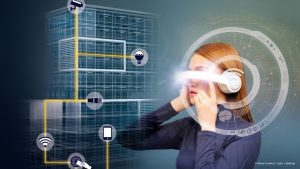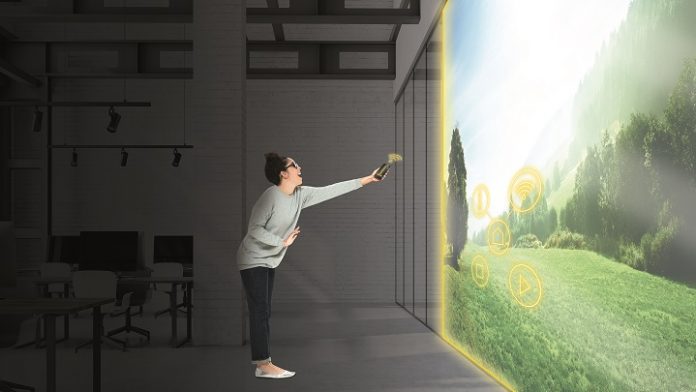Yesterday experimental, today a practical everyday application: the growing pace of digitalisation is generating chances, new opportunities and challenges. Innovative ideas are welcome and there is a great willingness to try something new.
Nevertheless, the increasing use of digital communication solutions is leading to a greater appreciation of tried and tested products.
Against this background, Light + Building in Frankfurt am Main from 13 to 18 March 2022 is set to provide orientation. The increasing pace of digitalisation impacts all aspects of life – and is closely bound up with the subject of sustainability. Green lighting and building services embrace the entire product life cycle, which begins with the planning and careful production of modern sources of lighting, takes account of component exchangeability, integrates an efficient control system, is characterised by a good ecological balance and ends with the correct disposal and recycling of raw materials.
The top themes of Light + Building are selected on the basis of their current and future relevance to the market and sector. Accordingly, dynamic digitalisation and sustainability are to be seen reflected in them time and again. But what do ‘Intelligent’, ‘Future-proof’ and ‘Trend-predicting’ actually stand for?

Dynamic digitalisation is a recurring aspect in the top themes at Light + Building.
Source: Messe Frankfurt Exhibition GmbH
Intelligent
The top theme ‘Intelligent’ focuses on systems whose key elements are connectivity and interoperability, which enable them to communicate seamlessly with each other. The result is increased convenience and efficiency in buildings. Additionally, it is easier to monitor specific climate goals.
‘Energy + Efficiency’ is the first category belonging to this top theme. It spotlights LED lighting in combination with intelligently linked operations using sensors and actuators. The second category, ‘Connectivity + Security’ revolves around the interoperability of the many different building-automation systems and components. In this case, too, an important role is played by the prioritisation of automatically interconnected functions and operations.
For example, what happens with the emergency escape route if, in the case of fire, a building’s windows close automatically to reduce the flow of oxygen? Covering a completely different theme is the ‘Charging Management + E-Infrastructure’ category. The long periods spent at work or at home represent ideal circumstances for charging e-cars. To this end, the charging point must be integrated into the building and, optimally, connected to an intelligent control system, which permits the supply of electricity to be regulated in accordance with the time of day and the number of devices.
Future-proof
How can production processes be made more efficient? When does the machinery actually need servicing and in which language does the house door communicate with the heating? These and many other questions are at the heart of the top theme ‘Future-proof’.
To hire or buy? Anyone who opts for ‘X plus service’ has already answered this question. Naturally, ‘X’ can be anything from an individual technology or service to a complete package, which is then paid for along the lines of a leasing agreement. Typical applications in the field of lighting and building-services technology include ‘Light as a Service’ (LaaS) and ‘Safety as a Service’. Whether in the health, automobile or heating fields, regular monitoring promises the early detection of defects or likely malfunctions. In the lighting and building-services sector, new technologies make it possible to connect components with each other and to collect data continuously.
This permits servicing requirements to be forecast and is covered by the ‘Analyse + Predictive Maintenance’ category. In the case of ‘Physical + Digital Twin’, the focus is on the numerous disciplines involved in the planning, construction and operation of a building. As with a good orchestra, all should interact perfectly and access the necessary data whereby the ‘digital twin’ of the building helps in the form of the IT-aided data interface, Building Information Modelling (BIM). ‘Human Centric Lighting’ (HCL) revolves around the targeted and longterm impact of light on humans. And this is the subject of ‘Health + Light’. In addition to the visual quality of the light, modern lighting systems can adjust the colour temperature in accordance with the time of day.
Trend-predicting
This top theme not only emphasises lighting and luminaire design but also shows how light becomes part of the network.
An office at home becomes a wellness zone, a waiting room becomes a prestigious lounge. The focus of the ‘Practical + Beautiful’ trend theme is on the challenge of adapting the individual lighting requirements in the best possible way. Luminaires are variable and changeable, on the design and technical levels. Track-lighting systems and modular components are suitable for use in both the public and private spheres. And can be coupled to smart control systems. Classic luminaires have a prominent place at Light + Building alongside futuristic designs. And the account is taken of this by the ‘Classic + Real’ category.
The ‘Historic + Contemporary’ trend theme brings together luminaires by international designers, the connectivity of which forms a technological link to the future. In appearance, they often include references to historical and classic archetypes. Lantern shapes, chandeliers and even the filament lamp itself provide for a retro-look in combination with state-of-the-art technology. The ‘Futuristic + Plain’ category spotlights freedom from a fixed location. LED table luminaires and lanterns made without inconvenient mains cables but with loops or hooks can be positioned almost anywhere. Standard lamps are also portable and can be astonishing in terms of shape, colouring and design.
Light + Building will be held from 13 to 18 March 2022.
For more information, visit www.light-building.com

